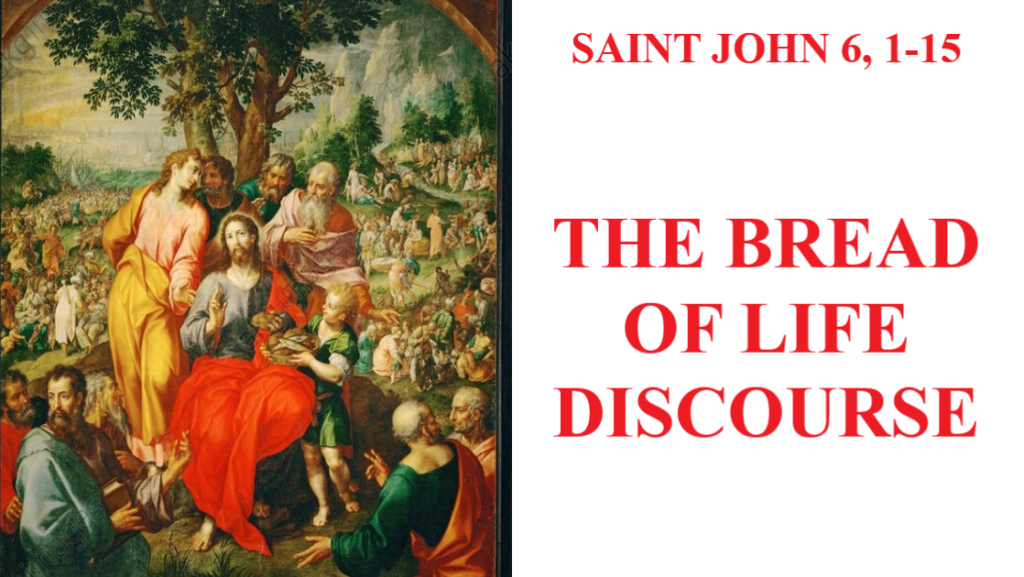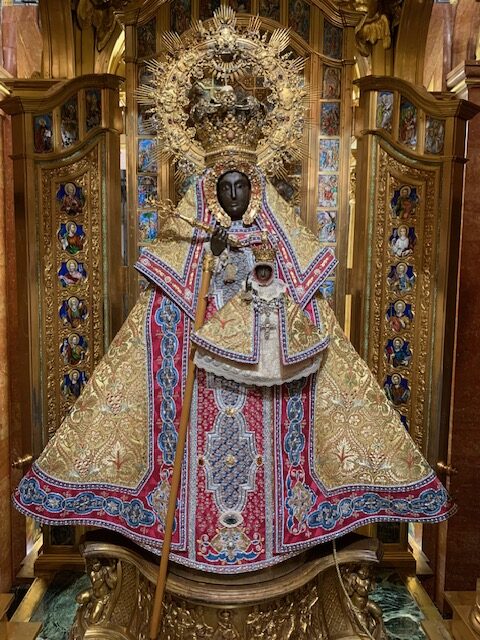
Friday 2nd week of Easter
Gospel of Saint John 6, 1-15
The evangelists repeatedly tell of the miracle of the multiplication of the loaves. John’s story is important and programmatic for understanding the person of Jesus, and specifically the place that the Faith and Eucharist binomial occupy in the Christian community.
Today the scene has expressive details: the initiative of Jesus himself moved by the fidelity of the people, despite the not excessive enthusiasm of his apostles for the idea; his leading role, more emphasized in John than in the stories of the other evangelists; the proximity of Easter, a symbolic nuance remembered by Juan; the nice contribution of the five loaves and the two fish by a young man; the human and «political» reaction of the people who want Jesus as king, misunderstanding his messianism, the «eucharistic» terminology of the story, although it is obviously not a Eucharist: the miracle is going to be interpreted -as we will read in the next few days- as a revealing «sign» of the person of Jesus, and ultimately clearly referring to the Eucharist celebrated by the Christian community.
Reflection:
In a world also now bewildered and hungry, Christ Jesus invites us to the continued multiplication of his Bread, which is himself, his Body and his Blood.
Also now the Eucharist can be understood as related to human and limited gifts, but gifts in the end, that we can contribute. The five loaves and two fishes of the young man can be compared to the wishes of justice and peace on the part of humanity, the ecological love of nature, the desired equality between men and women, and between races and races, the progress of science : Jesus multiplies those loaves and gives himself to us as the vital food and the answer to the best aspirations of humanity.
We who can enjoy the daily Eucharist appreciate even more the gift of Christ given to us as the illuminating Word and as the Bread of life.
Fr. Antony Majeesh George Kallely, OFM










